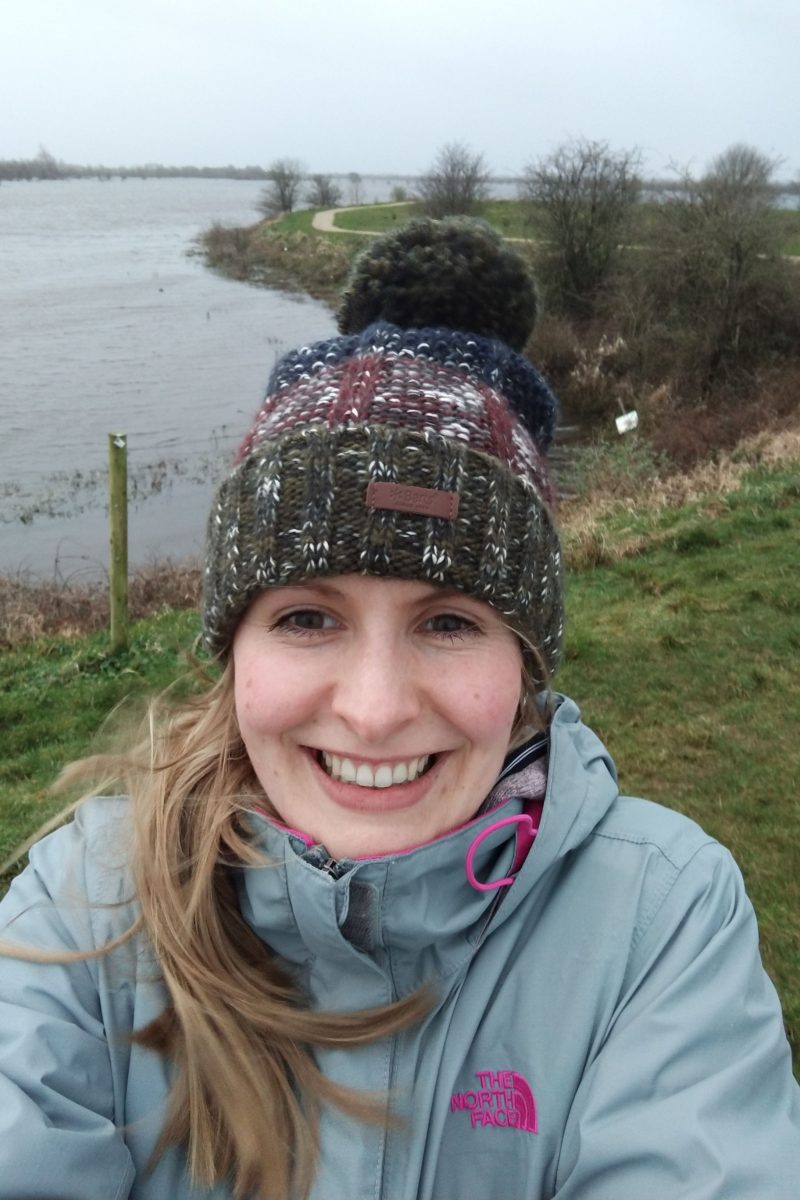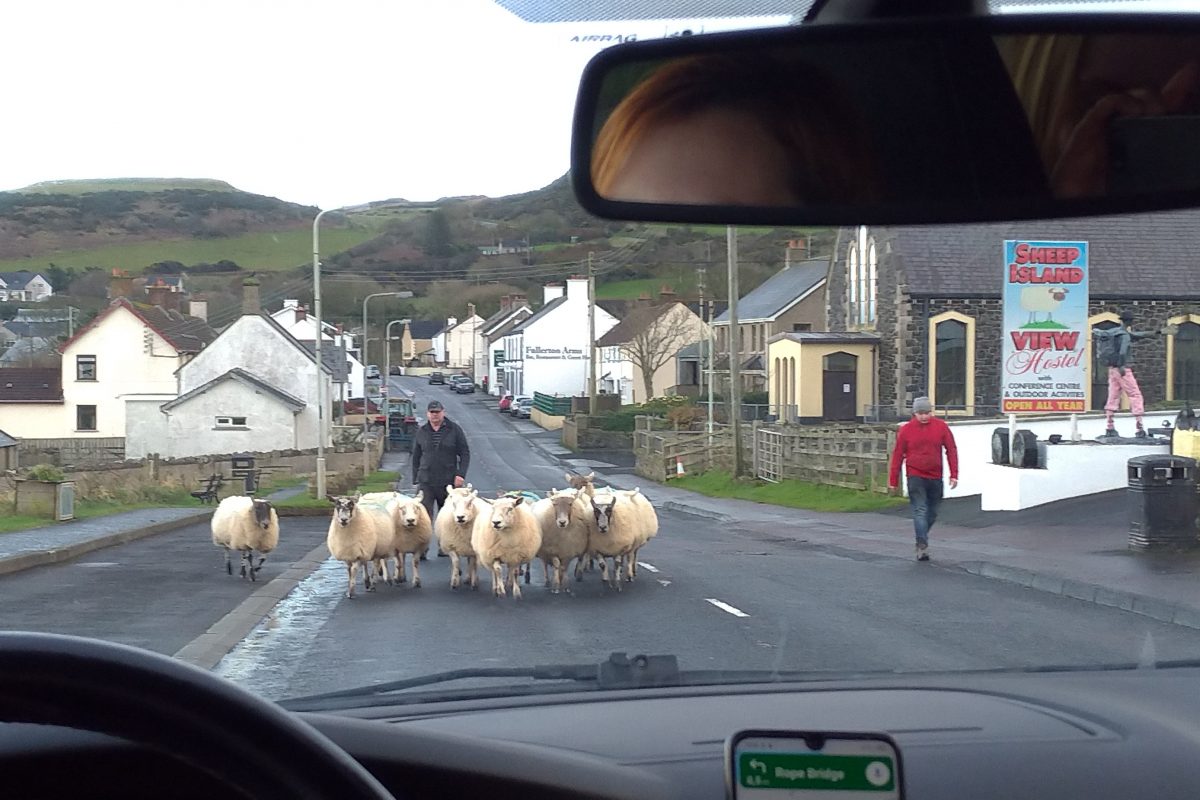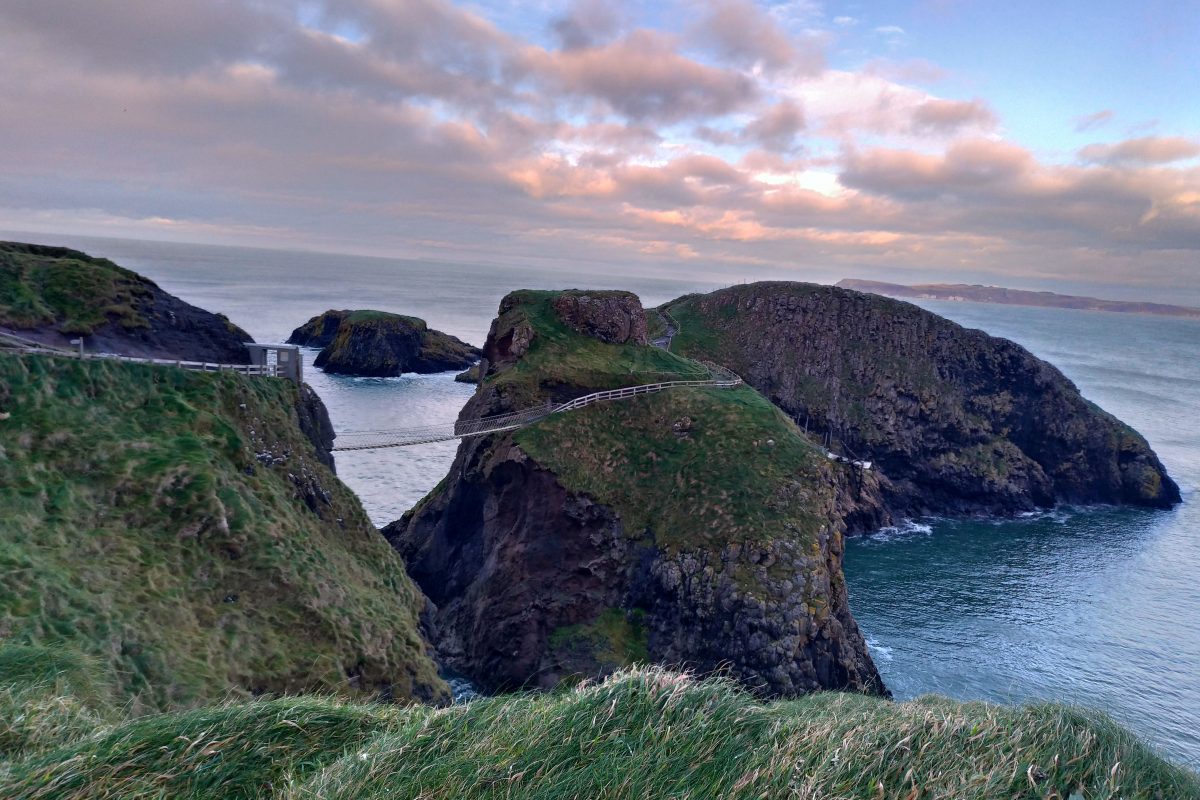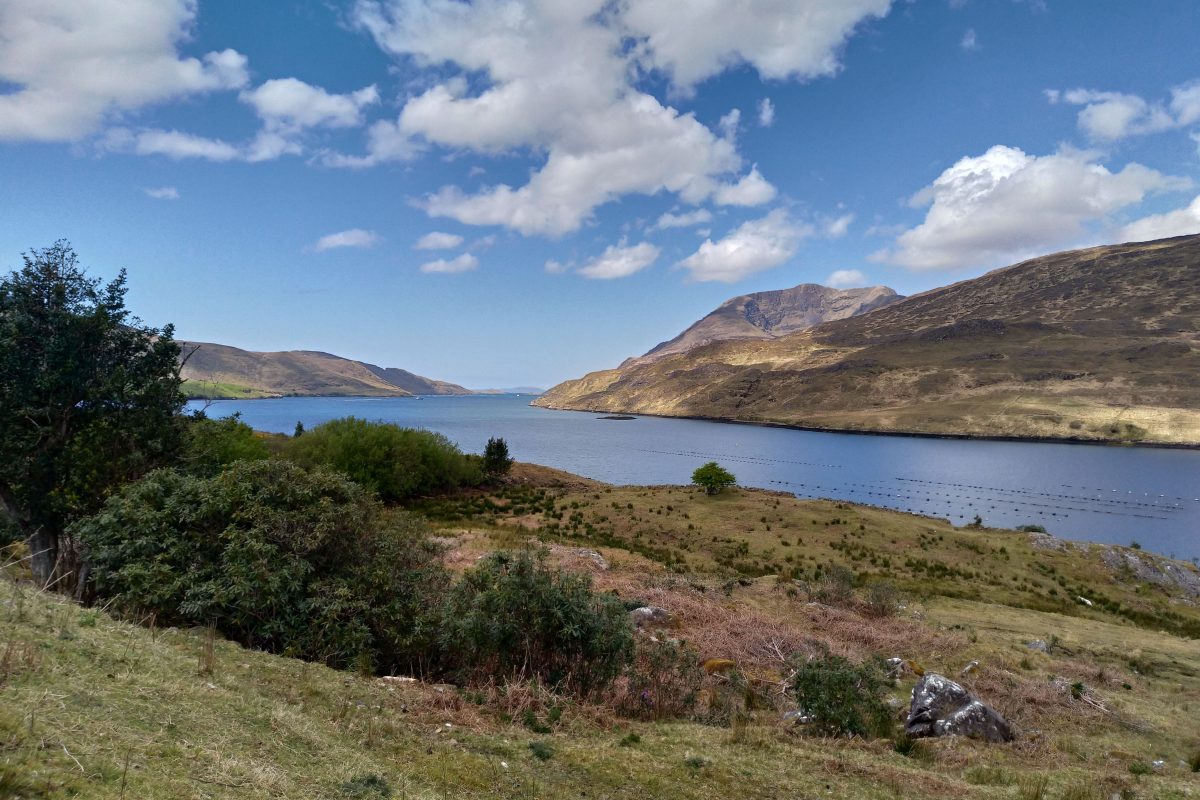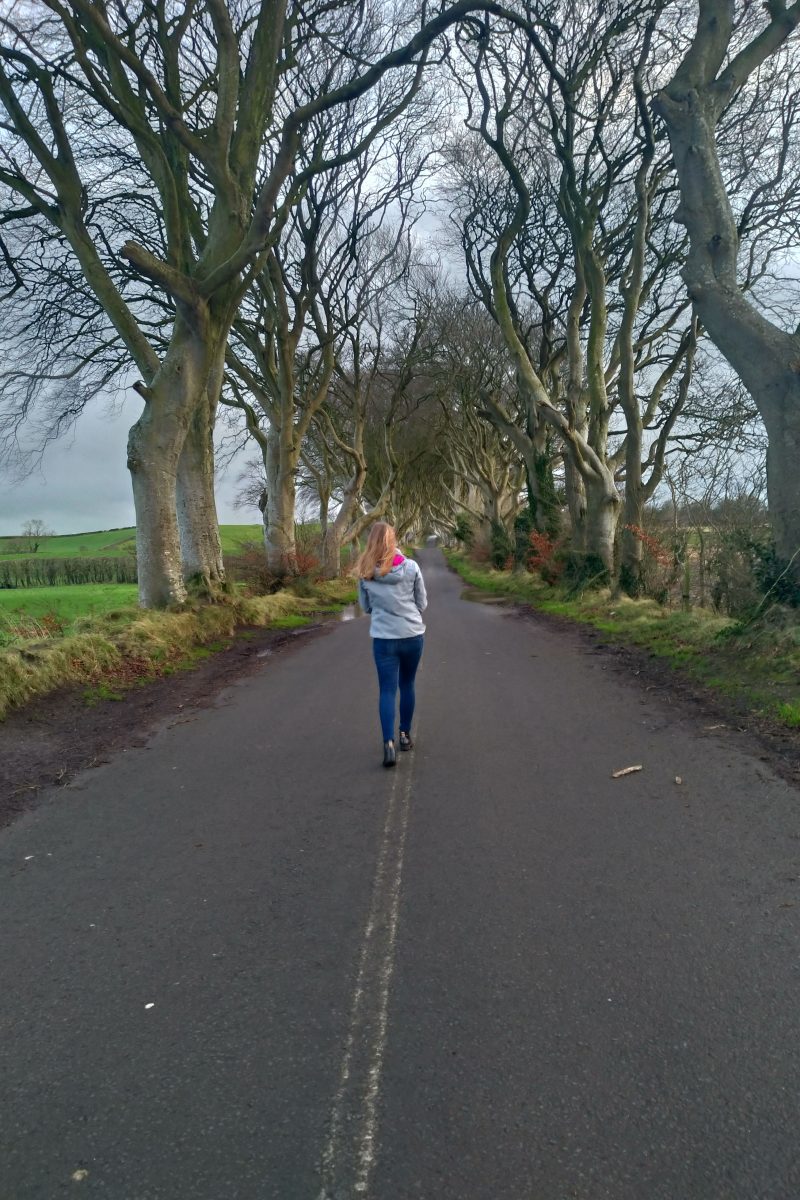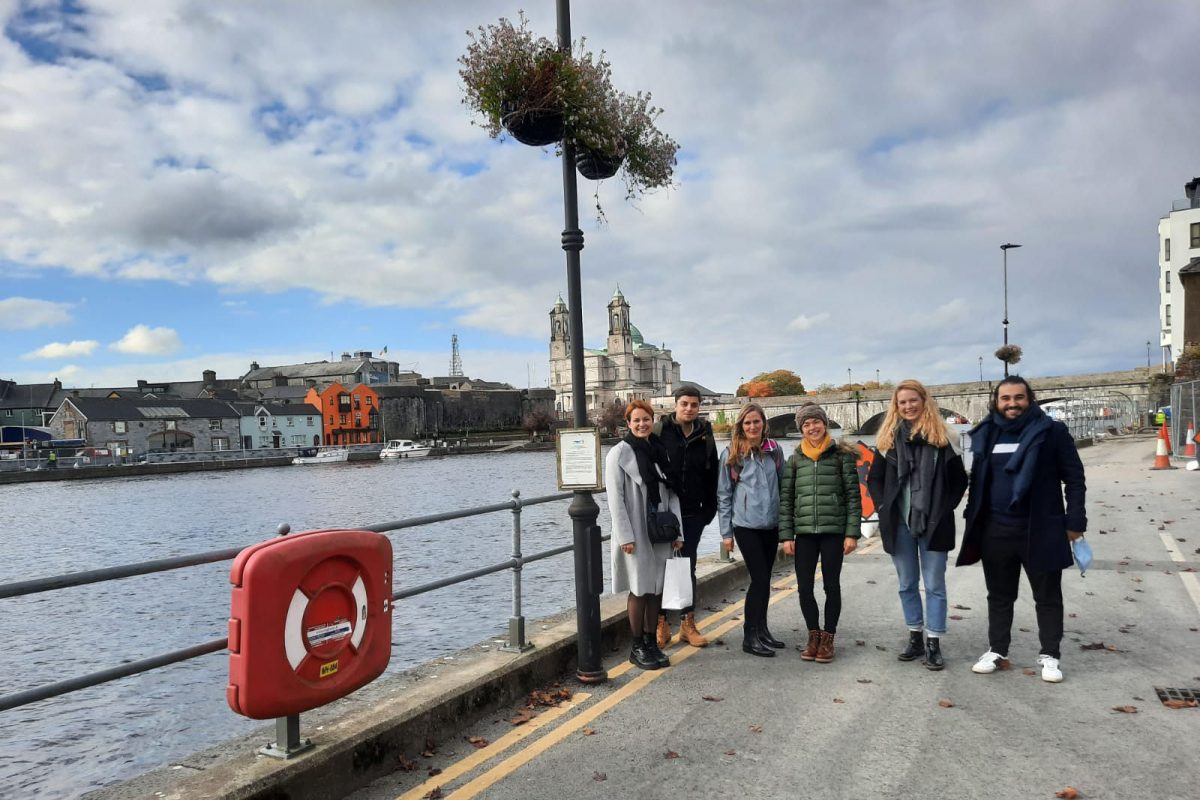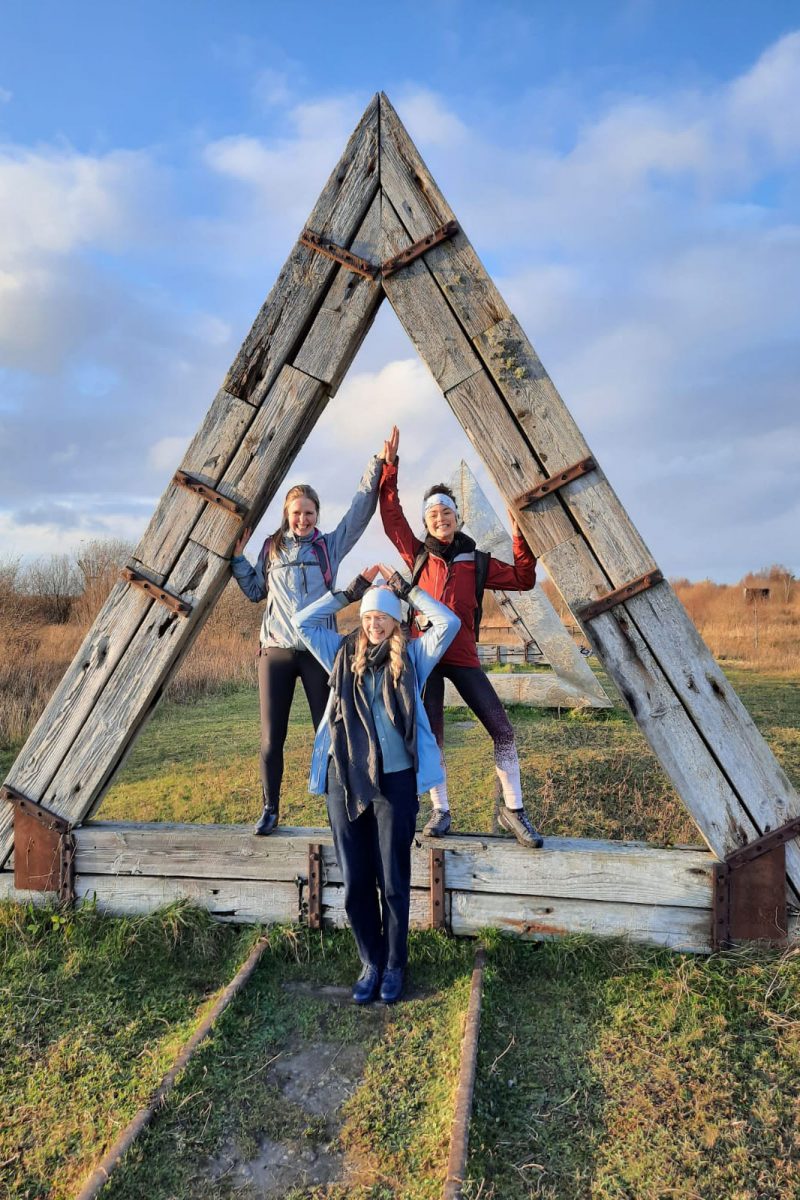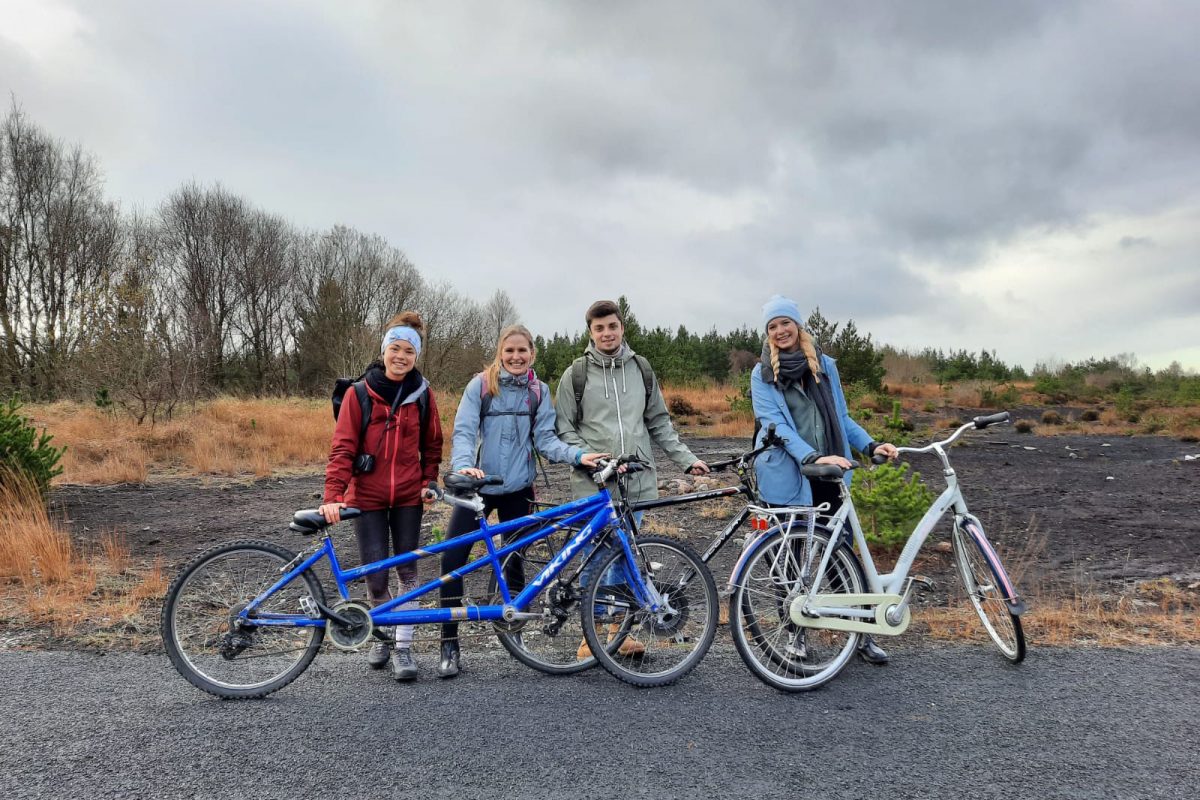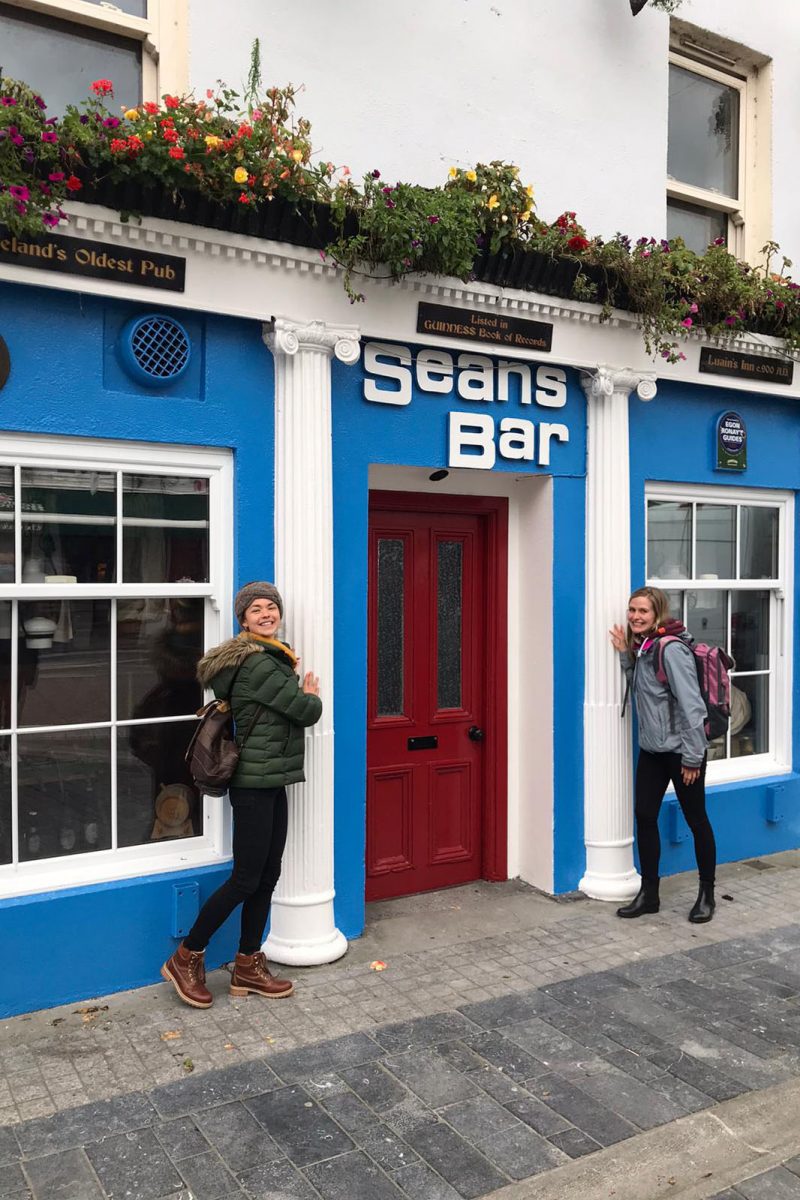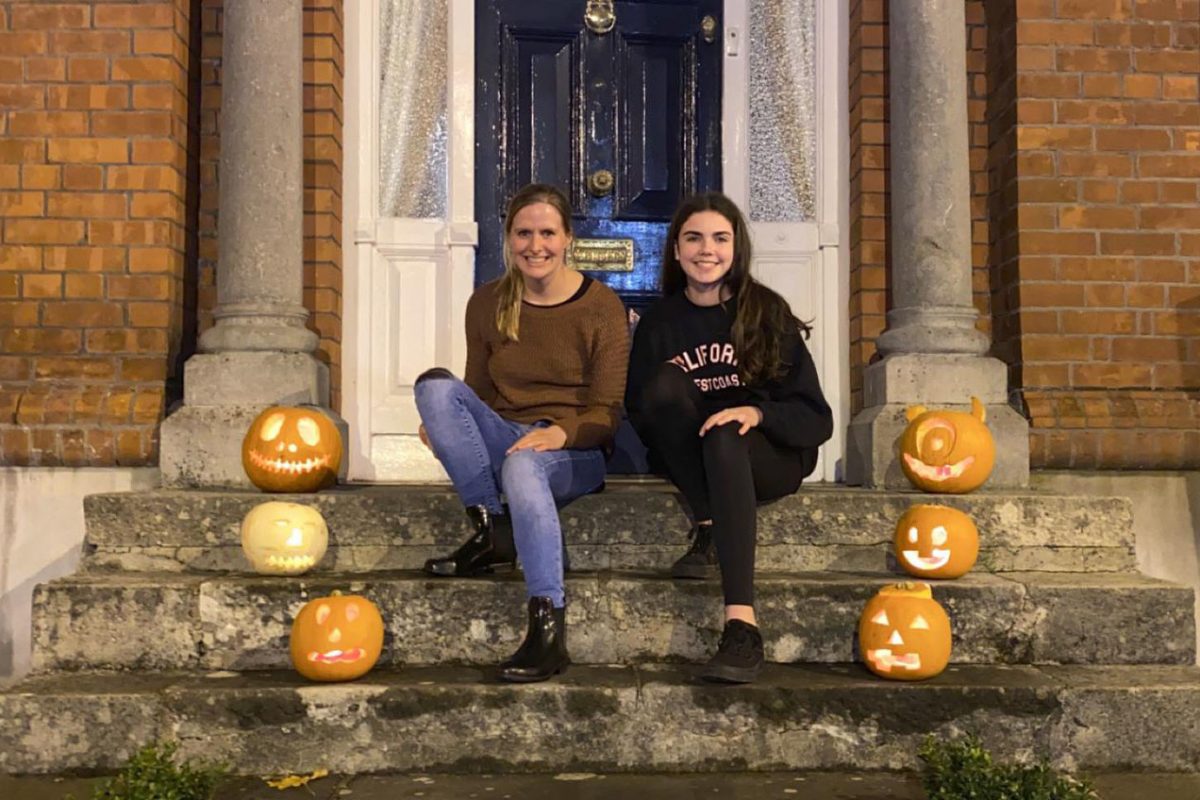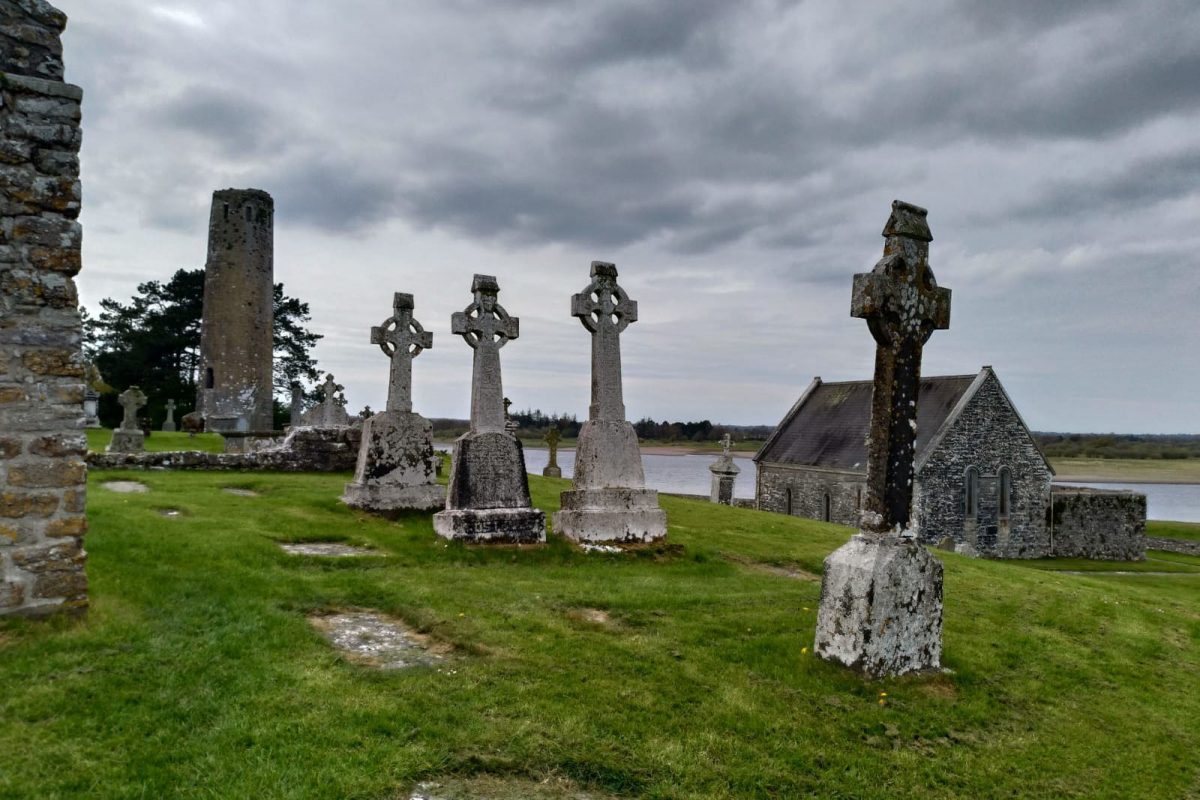Mail from … Athlone Master's graduate Judith Bartels talks about her stay abroad in Ireland
General Information
This is where I live at the moment:
I am currently living in Athlone in the middle of Ireland. The town is located between Dublin and Galway. With a population of 21,000, it is quite large by Irish standards, has good access to public transport, many restaurants as well as cafés and leisure activities. Ireland’s longest river, the River Shannon, runs through the city and there are several lakes nearby.
This is what I do in Athlone:
I work as a Teaching Assistant and substitute teacher for German in ten learning groups of all grades at Athlone Community College. Between April and June, the oral and written Leaving Certificate (the Irish Abitur) for German takes place, so the students are even more grateful for any support from native speakers. There is currently only one other German teacher at the school, as there is a shortage of language teachers in Ireland.
The total duration of my stay is:
My stay abroad will last a total of eight months and is organised through the Pädagogischer Austauschdienst (PAD) of the Lower Saxony Ministry of Education.
This is why I decided to go abroad:
Before my teacher training, I wanted to go abroad again to speak English with native speakers, to gain new (teaching) experience and to get to know Irish culture. My family has been fascinated by the “Emerald Isle” for a long time. I learned about this programme through acquaintances and relatives. After the successful application and a selection interview at the Lower Saxony Ministry of Education in Hanover, I started preparing for my first trip to Ireland.
Local life
This is how I live in Athlone:
I live in an annex to an Irish family’s house. I have my own room and bathroom. I share the kitchen with a French housemate. There is a through door to the family’s house, where I am always welcome and drop in daily. Although the house is very central in the city centre, there is a large garden and a covered terrace for barbecues. I do a lot together with the family, we cook and eat together, go on walks and excursions, watch the news or talk in front of the fire.
What makes working in Ireland different from working in Germany?
School in Ireland doesn’t start until 9 o’clock and goes until a quarter past three or four, depending on the day of the week. There are school uniforms and quite strict rules. In the beginning, Irish names are very difficult to pronounce. The Irish language is also very different from English in terms of spelling, intonation and pronunciation. You are usually addressed by your first name, even if you hardly know the other person. There is no such thing as participation grades in Irish schools, which is why students are used to teacher presentations. There are different subjects in Irish schools, such as SPHE and woodwork, and a wide range of after-school activities. These include the debating society and sports such as hurling, Gaelic football and rugby.
Particularly typical for the country of my study abroad is:
My stay abroad is taking place during a unique time. Therefore, I often met people online and also taught online for a while or alternated between online and face-to-face teaching. The Goethe Institute in Ireland offered extra training on “Online Tools”. I give online tutoring via platforms such as Microsoft Teams or Zoom. Privately, I do a lot with my Irish family, my flatmate, other foreign friends in town or colleagues. We meet outside for walks or picnics in the park.
This is what I learned here in the first three days:
I spent the first two weeks in quarantine due to the pandemic-related entry restrictions. But I quickly learned that the bus driver is greeted with a ‘thank you’ when leaving. There is usually bilingual, Irish and English lettering on buses and road signs. The Irish are very humorous, hospitable and interested in the newcomers in town. Due to the manageable size of Irish cities, news gets around quickly.
The biggest challenge so far during my stay:
The biggest challenges were travelling under pandemic conditions, getting to know colleagues and learning student names.
This is what I will take home with me from here:
An Irish oven mitt with a cow pattern that my host family gave me because I love to cook and bake. I’m also taking home recipes for soda bread and sponge cake as well as lots of nice photos and memories, addresses and phone numbers of new friends.
Good to know
These are some local dishes you should definitely try:
Irish sodabread: a bread with buttermilk, the Irish dairy products, Bacon&Cabbage, Irish Stew, Guiness and Irish Coffee.
Which blunder should you avoid in Ireland?
The Irish often greet each other with the question “How are you?”. This is often just a phrase you don’t need to respond to at length. Some English phrases are unusual at first (“to hit the bed/hoy”, “that doesn’t float my boat”), but you learn them quickly.
This is a tip I would give to other students who want to go abroad:
It depends on what you make of it! Be open-minded about new things, accept invitations to activities or make plans with others, for example to play sports and get to know people. Show initiative and reach out to others! Organise online activities such as Escape Games, online pubs or online coffee drinking if this is not possible otherwise.
Pandemic
I took these special precautions in advance because of the Corona virus:
I regularly checked the guidelines and travel regulations and signed up for the Foreign Office’s Elefand mailing list. Masks and disinfectants are my constant companions, as they probably are everywhere in the world.
This is how the Corona virus is affecting my stay:
Wearing masks made it difficult to understand the students at first. Travelling is very limited and getting to know other people is naturally more difficult. Saint Patrick’s Day and all other celebrations took place on a very small scale or online. The town of Athlone is very quiet as most of the shops and attractions are closed.
This was my favourite way to pass the time despite the pandemic:
I spent a lot of time on coffee to go and walks with friends and colleagues. I baked and cooked a lot with the Irish family. I also read in front of the fire or watched RTÉ News, Father Ted, The Tommy Tiernan Show or The Late Late Show with the Irish family. I also enjoyed spending time in the garden or in the park by the Shannon doing yoga when the weather was good.

